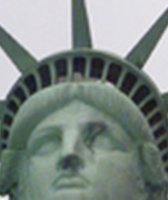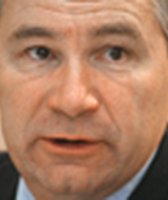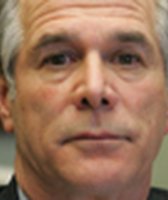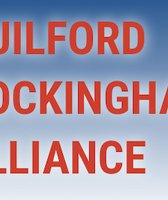Stand up for the facts!
Our only agenda is to publish the truth so you can be an informed participant in democracy.
We need your help.
I would like to contribute
ACLU says RI would be lone Northeastern state to adopt voter photo ID requirement
Got ID?
A bill before the General Assembly would require all voters in Rhode Island to show photo identification before casting a ballot.
Sen. Harold Metts, D-Providence, and Secretary of State Ralph Mollis, who worked together to introduce the bill, say it would help prevent fraud and ensure the integrity of elections. Critics argue that fraud is rare and that obtaining a valid ID is an obstacle to voting for the poor, the elderly, people with disabilities and racial minorities.
In opposing the bill, the Rhode Island Affiliate of the American Civil Liberties Union stated in a news release, "No other Northeastern state has passed a photo ID law."
Is Rhode Island truly alone among other states in the region? We elected to find out.
Both the ACLU and the secretary of state’s office, who are on opposite sides of the issue, directed us to the bipartisan National Conference of State Legislatures.
The first thing we learned is that nearly half of the states -- including Rhode Island -- only require voters to provide a signature at the polls.
But that’s been changing rapidly.
In 2000, just 15 states asked for ID, such as a birth certificate, Social Security card, photo ID or voter registration card. But today, the number has grown to 28.
Another 13 state legislatures have taken up voter ID legislation this year, including 8 that are considering expanding their ID requirements to include photo identification.
The laws "are becoming more prevalent and stricter," said Jennie Bowser, senior fellow at the National Conference of State Legislatures. "It has been slowly growing over the last decade. And there has been a big pickup in activity this year."
Photo ID laws differ on what’s considered an acceptable form of ID and who is exempted from showing one. (Kansas, for example, exempts those whose religious belief prohibit photo identification.)
Another variable is what happens when someone arrives at a poll without a photo ID.
Florida’s canvassing board reviews whether the vote may be tallied. Hawaii asks voters without a photo ID to recite their address and date of birth. Several states accept a provisional ballot, but only count it when certain requirements are met. Georgia, for example, gives voters two days to present a valid ID. Idaho and Louisiana offer the option of submitting an affidavit, which if filled out falsely can result in criminal charges.
Rhode Island’s proposed law (passed by the Senate, but held for more study in the House) would go into effect in stages. Beginning in 2012, voters would have to show a college ID, driver’s license, passport or other government issued card. IDs without a photo, such as a Social Security or Medicare card, would be accepted, but only until 2014.
At that time, voters without a photo ID would have two choices. First, they would have to obtain, at no charge, a voter identification card from the state prior to going to a polling place. Second, they would have to go to their polling place and cast a provisional ballot that would have to be inspected by a review board before being counted.
Now, returning to the ACLU’s claim, are there any states with photo ID laws in the Northeast? Since the ACLU didn’t say what it means by Northeast, we’ll use the U.S. Census Bureau definition: the six New England states plus New York, Pennsylvania and New Jersey.
The National Conference of State Legislatures reports that none of these states requires, or even requests, a photo ID. (In fact, only one Northeast state -- Connecticut -- requires any ID at all.)
"As far as I know there is no Northeastern state that has photo ID as a requirement," agreed Sean Greene, manager of research for the Pew Center on the States, which tracks voter ID legislation.
There are certainly states close to the Northeast with stricter rules. Delaware, Virginia and Ohio all require identification. Michigan and Indiana are among nine states nationwide that request or require photo IDs.
"The majority of bills pending this year are photo [mandates]," said Bowser, of the National Conference of State Legislatures.
Among them are two New England states, Maine and New Hampshire. Connecticut, too, has in the past considered photo identification, but has so far rejected the idea.
In its attempt to portray Rhode Island as remarkably isolated on the issue, the ACLU has omitted some relevant facts: other states in the country are increasingly turning to photo ID laws; the majority of new bills under consideration across the country would require photo IDs; and two of Rhode Island’s neighbors in New England are considering such mandates.
But the ACLU is factually correct when it states that no other state in the Northeast requires photo ID.
That’s why our judges (whose IDs, incidentally, we did not request) voted to rate the ACLU claim True.
(To comment or offer your own ruling, visit us on Facebook.)
Our Sources
American Civil Liberties Union, "Voter ID Legislation" news release, accessed on May 16, 2011.
National Council of State Legislatures, "Voter Identification requirements" and "Photo Voter ID" web pages, accessed on May 16, 2011.
R.I. General Assembly, "Voter Identification Act," and "Senate Passes bill to require proof of ID at polling places," accessed on May 17, 2011.
Interview, Jennie Bowser, senior fellow, National Conference of State Legislatures, May 16, 2011.
Interview, Sean Greene, manager of research, Pew Center on the States, May 17, 2011.
Interview, Hilary Davis, policy associate, Rhode Island Affiliate American Civil Liberties Union, May 16, 2011.
New Hampshire General Court, bill status, photo ID legislation, accessed May 20.
Maine Legislature, "An Act to Strengthen Maine’s Election Laws," accessed May 20.
Browse the Truth-O-Meter
More by Richard Salit
ACLU says RI would be lone Northeastern state to adopt voter photo ID requirement
Support independent fact-checking.
Become a member!
In a world of wild talk and fake news, help us stand up for the facts.























































